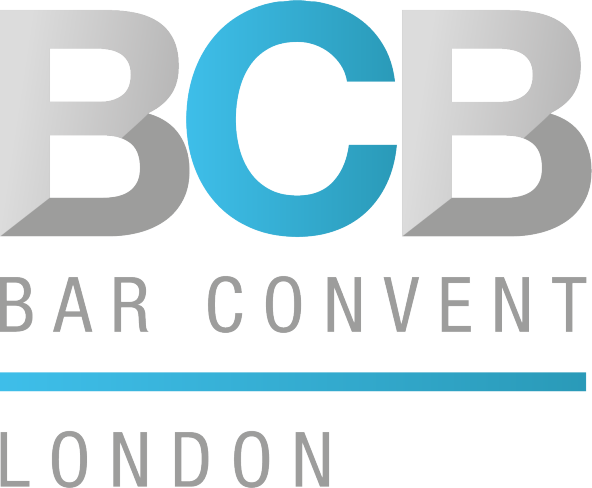On-trade drinks industry trends for 2022
For a vibrant, dynamic industry that’s used to rapidly-evolving trends, the last couple years have brought even more change to the UK on-trade than usual. The pandemic has had an undeniable effect on bar and restaurant industry trends, accelerating some that were already emerging, and bringing some of its own too.
Now that we’re returning to some semblance of normal, it’s a good time to take stock of the latest UK drinks industry trends, and consider the best ways to incorporate these within the hospitality industry, to ensure that you’re able to meet the needs of your guests.
Wellness and moderation
Even before Covid-19 had us washing our hands all the time and taking a closer look at our health, consumers were starting to look for healthier food and drink options, whether that involved cutting back on sugar, moderating alcohol intake, or looking for overtly functional ingredients like probiotics or CBD.
While lockdown was a time of over-indulgence for some, the prevailing trend seems to be towards wellness and moderation.
On the one hand, drinkers returning to the on-trade are in a celebratory mood, but they’re also bringing this new awareness of wellness with them, and are responding to food and drink options that take this into account.
Dedicated low– and no– cocktail lists play well into this, as do ingredients like kombucha that are associated with health benefits.
Premium RTDs
The jury’s out on whether the hard seltzer category will gain a foothold in the UK in the same way it has in the US, particularly in the UK on-trade, but premium ready-to-drink (RTD) cocktails have definitely made progress, in part thanks to the pandemic.
Drinkers stuck at home made good use of the great selection of home-delivery cocktails that bars produced to stay afloat, and they remain in their drinking repertoires now.
There’s an opportunity for bars here, to serve pre-batched cocktails to guests that are more receptive to these than ever, but also to open new revenue streams by offering these for delivery.
The Drinks Drop, created early on in the pandemic, teamed up with bars in Manchester and London to offer their cocktails throughout the UK, in recyclable pouches or glass bottles, and continue to do so. Others, like London venue Tayer+Elementary, offer their bottled cocktails via their own website.
Agave-specialist Hacha, meanwhile, has turned its striking RTD Mirror Margarita into a fully-fledged standalone brand of its own.
Local ingredients
Another pandemic-inspired trend is a greater focus on local – from consumers shopping at their local pub-turned-grocery store during lockdown, to supporting their local restaurants while they were closed.
For those in hospitality, this meant a greater focus on local drinks and cocktail ingredients than ever before, and it’s a mindset that isn’t changing now that the world is opening up again.
Opening right in the midst of the pandemic, Camden bar Crossroads sourced produce from its local community as a way of better connecting with them, and making the most of the growth in interest in gardening.
Kent Gin Co, another business set up during the pandemic, offering virtual spirit tastings, has just opened a bar championing Kent spirits, beers, ciders and wines – yet another initiative championing local.
Better-educated consumers
If there’s one thing that bartenders are noticing as guests return to prop up the bar, is that people spent their time brushing up on their drinks and cocktail knowledge.
Zoom cocktail lessons, educational Instagram accounts, virtual tastings all mean one thing: consumers have never been so clued up when it comes to drinks. Now they're bringing that knowledge with them into cocktail bars.
This has a few implications for the on-trade. On the one hand, classic cocktails are on the up, now that drinkers are comfortable with making their own at home. But they’re also open to twists on those classics, allowing bartenders to offer something extra that guests can’t create at home.
On the spirits front, meanwhile, this greater level of education means there’s potential to trade guests up to more premium spirits, provided these are offered with the appropriate level of interesting info. For categories like rum and mezcal, for example, there’s no shortage of background to provide, and ever-more interesting products on the market.
Digital opportunities for bars
We had the tech for digital, mobile-phone menus and QR codes before the pandemic hit, but very few hospitality venues were making extensive use of them. That’s all changed now, and many are sticking with these new formats, now that guests are more comfortable with them.
But that’s not the only way that the digital world is integrating with the hospitality industry. Most recently, non-fungible tokens (NFTs), have taken the online world by storm, offering collectors a way to invest in digital art, and the drinks world has been quick to join in.
While brands like Bud Light, Glenfiddich and Bacardi have been testing the waters, bartenders have identified the opportunities too. Starting in 2021, bartenders from the US all the way to Norway have been creating one-of-a-kind cocktail NFTs.
London’s first cocktail NFTs have come from Adam Handling’s Eve Bar. The bar’s NFT Cocktail Menu Collection consists of 13 pieces, made in collaboration with local artists and bartenders.
Sustainability
A growing trend for some time now, sustainability and environmental concerns have never been more prevalent.
Drinks companies large and small are on the case, with high-profile sustainability policies from Diageo, Bacardi and many more. Meanwhile, new sustainable brands are emerging, such as Nc'nean Distillery and Discarded Spirits.
The UK bar industry isn’t being left behind either, with pioneers such as Scout forging the way. Among those innovating in this regard at the moment are Nine Lives with its zero-waste approach to cocktails, and the aforementioned Eve Bar, which teams up with sister restaurant Frog to avoid waste.
Looking for something else?
